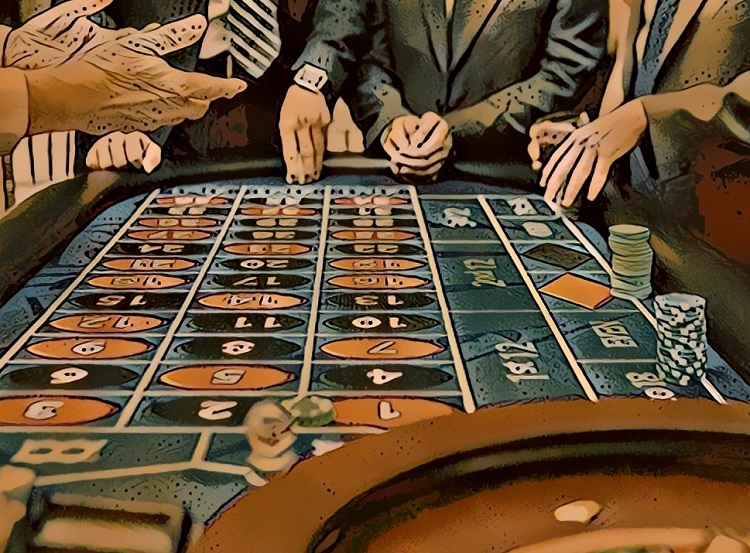Edwin Lefèvre in Reminiscences of a Stock Operator, a 1923 pseudo-fictional novel, chronicles the life and travails of the real Jesse Livermore, a stock trader par excellence of the time. He made and lost fortunes many times over but ultimately and tragically ended up taking his own life.
Jesse Livermore went from being one of the richest people in the world, made famous by a timely call of shorting US stocks right before the crash of 1929. Shorting stocks is a highly sophisticated and very risky strategy that profits from stock price declines. Never short stocks because people buy stupid investments at stupider prices all the time. Even if you are eventually proven right, it could be way after you were margin-called into liquidation.
But then we are talking about the great Jesse Livermore. He made 100 million in 1929 dollars, shorting stocks in what amounted to one of history’s greatest trades ever.
But a mere decade later, he was bankrupt. The ensuing stress and misery is likely what killed him.
That unfortunate story repeats itself over and over again with most lottery-like outcomes.
A few of my choicest excerpts from the book that relates to the topic at hand…
The sucker has always tried to get something for nothing, and the appeal in all booms is always frankly to the gambling instinct aroused by cupidity and spurred by a pervasive prosperity. People who look for easy money invariably pay for the privilege of proving conclusively that it cannot be found on this sordid earth.
Edwin Lefèvre in Reminiscences of a Stock Operator
Andrew Carnegie, the 19th century steel baron said something along the same lines (not from that book)…
There is scarcely an instance of a man who has made a fortune by speculation and kept it.
Andrew Carnegie
Why is that? Because there’s a fault with our wiring. We all love easy money. We think we can keep the wins coming. We get overconfident with whatever seems to be working so we bet more.
But that was all luck what we thought was skill and suddenly it is too late. The bubble has burst.
And it is especially dangerous when lady luck shines on us early in our investing lives. I know someone who did 10 times his money in less than a year playing crypto.
What happens to him now? None of what appears to be real investing that counts dividends and interest and cash flows will sound particularly exciting. Because exciting it is not.
Excitement with investing is like sitting on a powder keg. Sooner or later, there will be a blowup. More on that later but back to a few more quotes from that book…
The desire for constant action irrespective of underlying conditions is responsible for many losses in Wall Street even among the professionals, who feel that they must take home some money every day, as though they were working for regular wages.
Edwin Lefèvre in Reminiscences of a Stock Operator
Take home some money every day? That is a typical day trading mindset. Exchanging pieces of paper is not a job, just like playing poker is not.
Day trading is and will remain a zero-sum game…before taxes and fees. But after those costs, it is a guaranteed money loser. Don’t waste your life doing it.
And very, very reluctantly change anything with your money based upon temporary market events. It is one thing to start with a set of priors and update them in light of new information that could help change the trajectory of your plan.
But it is a completely different ballgame to change anything with your money based upon whims and rumors.
So, once you’ve got a solid financial plan, any dramatic changes to your money is in fact a sign of instability, a sign of a lack of conviction.
And once you lack conviction, you’ll guarantee bail the next time the market crashes. Then it gets rough. It can set you back decades. But back to another quote from that book…
Speculators buy the trend; investors are in for the long haul; “they are a different breed of cats.” One reason that people lose money today is that they have lost sight of this distinction; they profess to have the long term in mind and yet cannot resist following where the hot money has led.
Edwin Lefèvre in Reminiscences of a Stock Operator
This last one rings especially true considering what economist Charles Kindleberger once said…
There is nothing as disturbing to one’s well-being and judgement as to see a friend get rich.
Charles Kindleberger
Do not let envy override your financial plan regardless of how imperfect it might seem to appear at any given time.
They say you never grow poor taking profits. No, you don’t. But neither do you grow rich taking a four-point profit in a bull market.
Edwin Lefèvre in Reminiscences of a Stock Operator
So, you doubled your money buying some random stock. I say great. How much did you bet? If it was nowhere close to a life-changing amount, why did you bother?
And say you did invest in something that you believed in but cannot muster the courage to double or triple down when that investment temporarily flounders, because flounder it will, why did you own it in the first place.
A man must believe in himself and his judgment if he expects to make a living at this game.
Edwin Lefèvre in Reminiscences of a Stock Operator
So, all that makes sense but why bring it up? Wall Street Bets, a community of Redditers where investing for a week is considered long-term and a year, an eternity, had someone who goes by the moniker IKnowTheCodings post that he did 20 times his money in four years. Old news but it highlights a typical behavior found only at the peaks of a roaring bull market. That poster’s investment strategy…
He said that he usually focuses on a single position, sometimes as much as 90% of his portfolio will be concentrated on his conviction pick. At the moment, he’s “the most diversified” he’s ever been, with his portfolio split between AMD and Norwegian Cruise Line.
Investor turns $100,000 into $2.2 million — now he’s banking on a cruise line to reach his early retirement goals by Shawn Langlois in MarketWatch
I say he bet, and he won. Just like he would have if he gambled at a Vegas slot machine. Do not try this at home because just a week later, in another piece from the same magazine, coincidently written by the same author on another Redditter with the exact opposite and probabilistically more likely outcome…
Italian trader loses his ‘entire life savings’ on one insanely risky position.
Italian trader loses his ‘entire life savings’ on one insanely risky position by Shawn Langlois in MarketWatch
His investment strategy…
Yes, StopFapForever, who claims to be a 28-year-old Italian, shared his brutal market mistake with the bunch on WallStreetBets. He apparently went all-in on Luckin and lost his entire life savings in the process. “Now I’m broke af,” he wrote.
After getting hammered overnight, he shared the expensive lesson he learned. “I’m gonna just invest in ETFs, gold and bonds for the rest of my hopefully long but quite useless life,” he said.
Italian trader loses his ‘entire life savings’ on one insanely risky position by Shawn Langlois in MarketWatch
Gold? Yuck.
And when you buy an investment, any investment, there is always a seller at the other end.
And with more than 90% of the trading done by institutions, that seller is likely a Goldman Sachs. Or Carl Icahn. Or some hedge fund who lives and breathes these things every waking hour.
So, you better have a real solid reason to buy an investment that someone as sophisticated as them are selling.
But assume you still feel compelled to seek excitement in finance. I wouldn’t do it but if you insist, slice off a tiny portion of your money and have at it.
But keep it away from polluting the rest of your money. Start with today and take say a maximum of 10 percent of what you own and never add to it. When it is gone, it is gone.
And hopefully with it will go that desire for speculation.
Thank you for reading.
Cover image credit: Javon Swaby, Pexels

